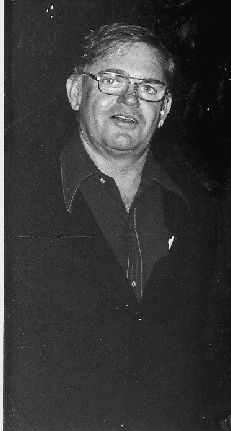Colin Jamieson facts for kids
Quick facts for kids
Colin Jamieson
|
|
|---|---|
 |
|
| Leader of the Opposition in Western Australia | |
| In office 16 April 1976 – 21 February 1978 |
|
| Preceded by | John Tonkin |
| Succeeded by | Ron Davies |
| Constituency | Canning (1953–1956) Beeloo (1956–1968) Belmont (1968–1974) Welshpool (1974–1986) |
| Personal details | |
| Born | 26 May 1923 Perth, Western Australia |
| Died | 27 March 1990 (aged 66) Subiaco, Western Australia |
| Political party | Labor Party |
| Spouse | Emily Margaret Male |
| Profession | Carpenter and joiner |
Colin John Jamieson (26 May 1923 – 27 March 1990) was an important politician in Western Australia. He was a member of the Labor Party. Colin Jamieson served in the Western Australian Legislative Assembly from 1953 to 1986.
He was also a minister in charge of important areas like water. From 1976 to 1978, he was the Leader of the Opposition. This means he led the main party that was not in power. Ron Davies took over this role after him.
Contents
Who Was Colin Jamieson?
Early Life and Family Background
Colin Jamieson was born in Perth on 26 May 1923. His father, George Archibald Jamieson, worked at a vineyard. His mother, Mona Colvin, was a nurse. Colin's grandfather, Archibald, came from the Orkney Islands. He was involved in creating a railway workers union. He was also the mayor of Midland Junction Municipality in 1914–1915.
When Colin was five, his mother sadly passed away. After that, his aunts and then his grandparents looked after him. He went to primary schools in Midland, Victoria Park, and Leederville. He also attended Junior Technical College in West Perth.
Education and Early Jobs
Colin finished his formal schooling at age 15. He first worked at the Metropolitan Markets. There, he helped sell fruit and vegetables. Later, he worked at a motor body shop. He planned to become an apprentice there.
Military Service During World War II
Colin Jamieson joined the Australian Army on 30 July 1942. He was a corporal in a transport company. In 1944, he moved to the Royal Australian Air Force. He became a radar mechanic. He was discharged from the military in April 1946.
Life After the War
After the war, Colin worked at the Midland Railway Workshops. He was a labourer and storeman. He also became active in union matters. Later, he trained to be a carpenter and joiner. This was part of a program for ex-servicemen.
On 14 May 1960, he married Emily Margaret Male. They got married at Holy Family Church in Como. They had two children, a son and a daughter.
Community Involvement and Hobbies
Colin Jamieson was very involved in helping his community. He especially loved amateur football. He was an executive member and later president of the state football organization. He served there from 1947 until 1986. He also enjoyed playing tennis.
In 1971, he received an award for his work in amateur football. He also supported several gardening groups. He was known for successfully showing his beautiful roses, dahlias, and chrysanthemums.
Later Life and Recognition
After he retired from politics in 1986, he continued to serve the community. He was the chairman of the Metropolitan Cemeteries Board. In 1988, he received the Order of Australia. This award recognized his great service to the Western Australian Parliament and the community.
Colin Jamieson passed away on 27 March 1990. He was cremated at Karrakatta Cemetery. A drive in Fremantle Cemetery and a road in Welshpool are named in his honor.
Colin Jamieson's Political Career
Colin Jamieson was elected to office in the 1974 Western Australian state election. He was a member of the Labor Party. At that time, the Labor Party was in opposition.
He was part of the shadow ministry from March 1974 until April 1976. When John Tonkin retired in 1976, Colin Jamieson became the State Leader of the Labor Party. This made him the Leader of the Opposition. He led his party against the government. He was defeated by the Liberal Premier Sir Charles Court in the 1977 state election.
Images for kids
-
Jamieson (on left) with Labor figures Paul Keating, Peter Walsh and David Combe in 1979.
 | John T. Biggers |
 | Thomas Blackshear |
 | Mark Bradford |
 | Beverly Buchanan |


